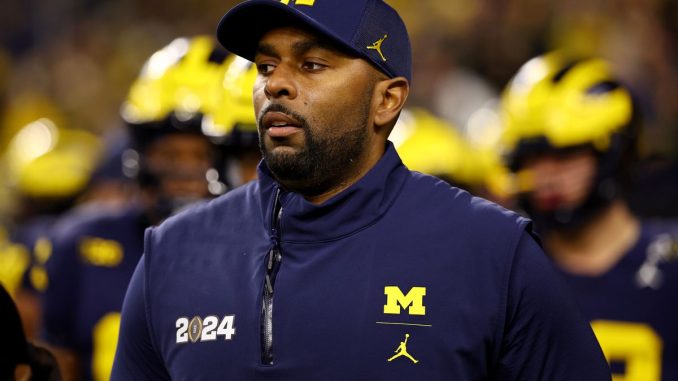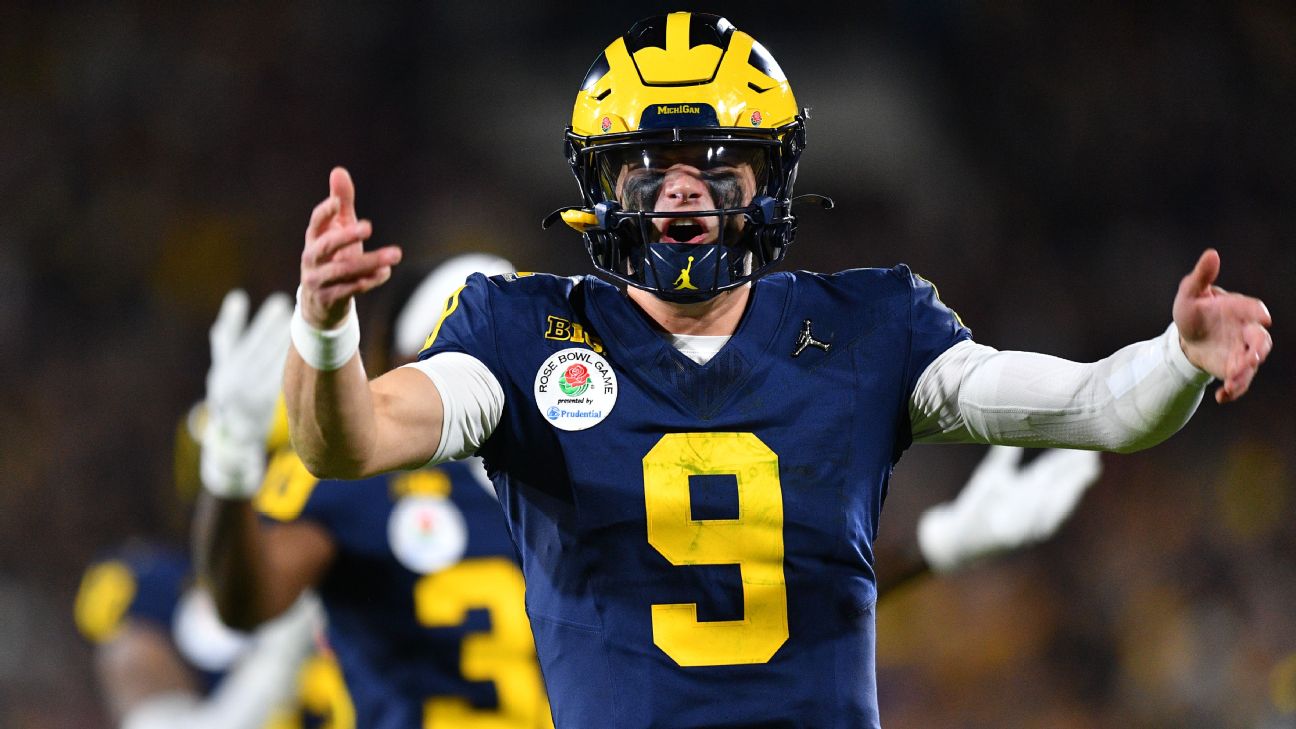
I Was Transformed by the Best Cult Ever: Michigan Football

I went to Ann Arbor, Mich., for a journalism fellowship because I was stuck in life. An outside observer might say I was depressed, unhappy and a little too obsessed with my dog. I felt isolated and lonely — part of the psychological epidemic that followed the pandemic.
Dozens of people told me two things about Ann Arbor: Eat at Zingerman’s and get season tickets for University of Michigan football. I love sports. I grew up on the Lakers and the Dodgers. I’ve written for Sports Illustrated and freelanced for ESPN and have covered women’s sports and inequity.
But I never wrote or cared about football. It wasn’t the violence; I’m a big fan of boxing and trained at Gleason’s Gym for more than 15 years. Football just wasn’t part of my culture growing up.
I bought a student season pass for the home games. I figured I’d go to one game and probably sell the other six tickets.
But what followed changed my life. I was transformed by Michigan football. My mental health shifted; I was happy for the first time in a long time.
And it wasn’t just about football. It felt bigger than that, as if joining a massive crowd is novel and embarrassingly spiritual. We were in it together.
For my first game, Ann Arbor radiated maize and blue. I stopped at a tailgate with friends. You could see the bricks of the Big House — officially, Michigan Stadium — from their corner and hear the pregame hysteria. Strangers offered me squares of shortbread (each with a letter from “Michigan”), sandwiches, chips, beer, White Claw.
I was still skeptical when I entered the Big House, but it was stunning. Something — some kind of mystical energy that can come only from 110,000 people chanting in unison — washed over me. I stood on the bleachers and yelled and cheered and mumbled the fight song (I didn’t know the words yet). I worried that the students pounding Fireballs would tip over and turn into human dominoes.
The place was so packed but so purpose driven that everyone held one another up, caring when caring was needed. They pointed out when phones fell, or someone needed hydration, or an escort out. In the Big House (the third-biggest stadium in the world, if you count a claim by North Korea, which is tough to verify), I felt delirious joy, meditative peace, a sense of comfort. Maybe this is what being in a megachurch or a Trump rally feels like to true believers. Maybe I am a true believer in Michigan football.
Football wasn’t an immediate salve. I was still feeling lost and displaced and confused ahead of the third home game. I knew that I needed to get out of the house, and so I walked to the game. From blocks away, I could hear the fans screaming and feel the earth move.
I entered the Big House again and again, for the rest of the season. For seven home games, I understood more about why I gravitated to the stadium. Something clicked. My mood, upon entering, changed immediately. I was swept up in frenetic joy. It was as if we, the fans, were a superorganism.
I tailgated in 19-degree frost; screamed for Victor, the Frisbee-catching dog; chanted “Hail to the Victors” with the band; sang “Mr. Brightside” as loud as possible, a cappella, in unison; shared small bottles of tequila with people I’d never met.
One surprising reality of the Big House magic is that there are so many people in one place that cellphones don’t work: The infrastructure can’t handle the density of users. There is no way to experience the two to three hours together except by paying attention and participating. There is no way to get lost in a horrifying social media feed or internet rabbit hole.
Through football, my mental health shifted; I was happy for the first time in a long time. I found strangers who became friends, long-lost friends (die-hard Michigan fans) who re-emerged in my life, relatives and colleagues who were alumni cheering on my cheering from afar.
I found myself joining the best cult ever: Michigan football. It has helped that we’re undefeated (notice how I use “we” now) and favored to win the national championship (starting with a College Football Playoff semifinal, the Rose Bowl, on New Year’s Day).
Going to the games has allowed for release and purpose. Since Covid, I’m not alone in realizing how starved I was for this deep feeling. I entered a communal space with tens of thousands of fellow travelers who shared in the same experience, who had the same goals — to cheer, to win, to celebrate a team and a tradition and to experience a collective sense of belonging.
In 2021 the Stanford literature professor Hans Ulrich Gumbrecht wrote a book about crowds and stadiums as a ritual of intensity. He covered the idea that crowds can open humans up to experiences beyond ourselves.
Since Covid, these gatherings are more pronounced. I realize escape is a privilege, but for me the season pass was cheaper than one session of therapy.
Somehow, I have evolved from a person with no relationship to football to a devoted fan who now spends her free time watching Jim Harbaugh news conferences and reading GoBlue blogs.
Leave a Reply